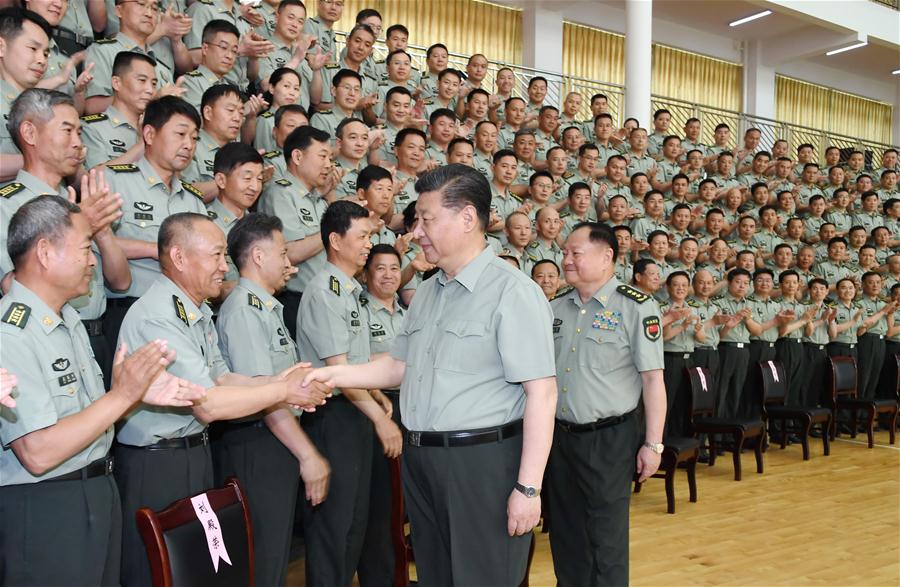Xi stresses military personnel education for strong armed forces
President Xi Jinping underlined the importance of better education of military personnel for building strong armed forces, when inspecting the Army Infantry College of the People's Liberation Army in east China's Jiangxi province on Tuesday.
President Xi Jinping underlined the importance of better education of military personnel for building strong armed forces, when inspecting the Army Infantry College of the People's Liberation Army in east China's Jiangxi province on Tuesday.
Chinese President Xi Jinping, also general secretary of the Communist Party of China Central Committee and chairman of the Central Military Commission, meets with military officers and experts at the Army Infantry College of the People's Liberation Army in east China's Jiangxi province. [Photo/Xinhua]
Military education should meet the requirements of combat, the needs of the armed forces and the demands of future missions, said Xi, also general secretary of the Communist Party of China Central Committee and chairman of the Central Military Commission.
He told military academies and schools to have a strong political underpinning, clarify their direction, advance reforms and improve education quality.
Arriving at the Army Infantry College on Tuesday morning, Xi came to the training ground to observe cadets tackle military obstacle courses.
Leaving the training ground, Xi visited an institute dedicated to the research on revolutionary history and stressed the passing on of revolutionary traditions.
When briefed about the work of the college, Xi stressed the need to follow the right political direction and strengthen Party leadership and Party building.
He asked the college to train the cadets for combat and focus on how to win when called on.
Xi stressed the need to accelerate innovation in school management and operation, strengthen integration and upgrading of the faculty, and introduce high quality educational resources from outside.
He called for imposing strict discipline, as well as curbing the practices of formalities for formalities' sake and bureaucratism.


